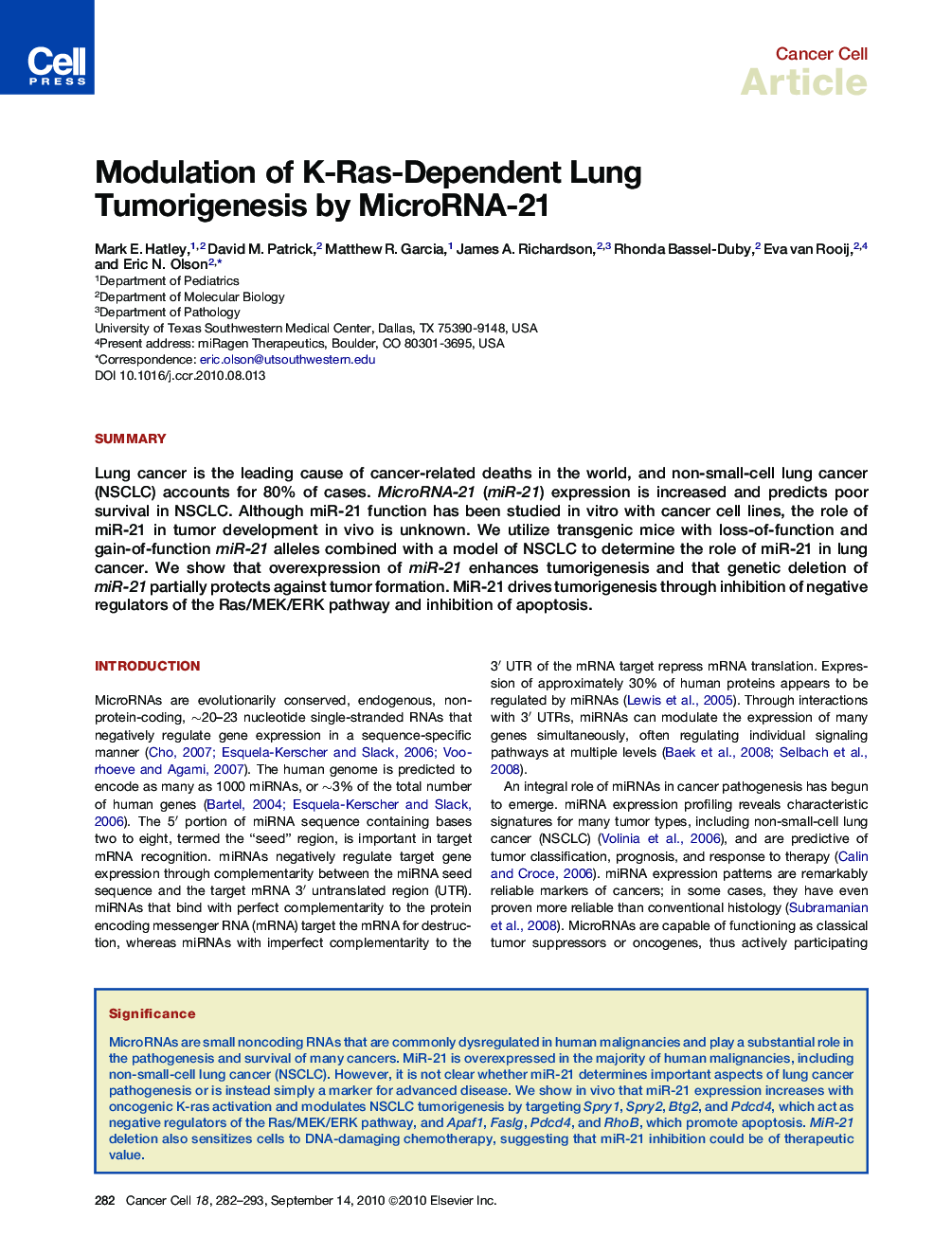| Article ID | Journal | Published Year | Pages | File Type |
|---|---|---|---|---|
| 2107460 | Cancer Cell | 2010 | 12 Pages |
SummaryLung cancer is the leading cause of cancer-related deaths in the world, and non-small-cell lung cancer (NSCLC) accounts for 80% of cases. MicroRNA-21 (miR-21) expression is increased and predicts poor survival in NSCLC. Although miR-21 function has been studied in vitro with cancer cell lines, the role of miR-21 in tumor development in vivo is unknown. We utilize transgenic mice with loss-of-function and gain-of-function miR-21 alleles combined with a model of NSCLC to determine the role of miR-21 in lung cancer. We show that overexpression of miR-21 enhances tumorigenesis and that genetic deletion of miR-21 partially protects against tumor formation. MiR-21 drives tumorigenesis through inhibition of negative regulators of the Ras/MEK/ERK pathway and inhibition of apoptosis.
Graphical AbstractFigure optionsDownload full-size imageDownload high-quality image (68 K)Download as PowerPoint slideHighlights► miR-21 overexpression promotes tumorigenesis in a mouse model of NSCLC ► miR-21 deletion suppresses tumorigenesis in a mouse model of NSCLC ► miR-21 targets multiple suppressors of Ras signaling enhancing proliferation ► miR-21 suppresses apoptosis by targeting proapoptotic genes enhancing survival
